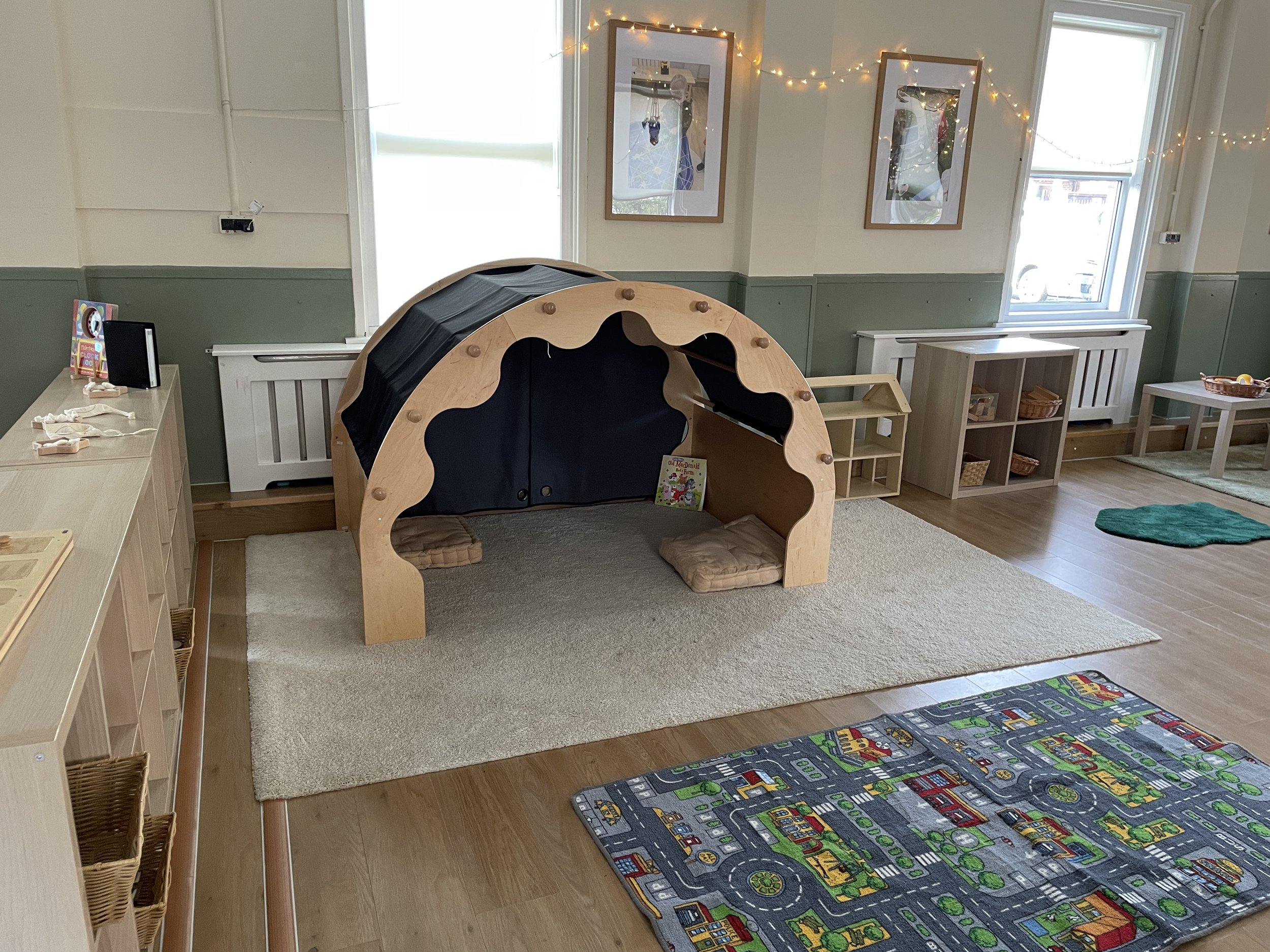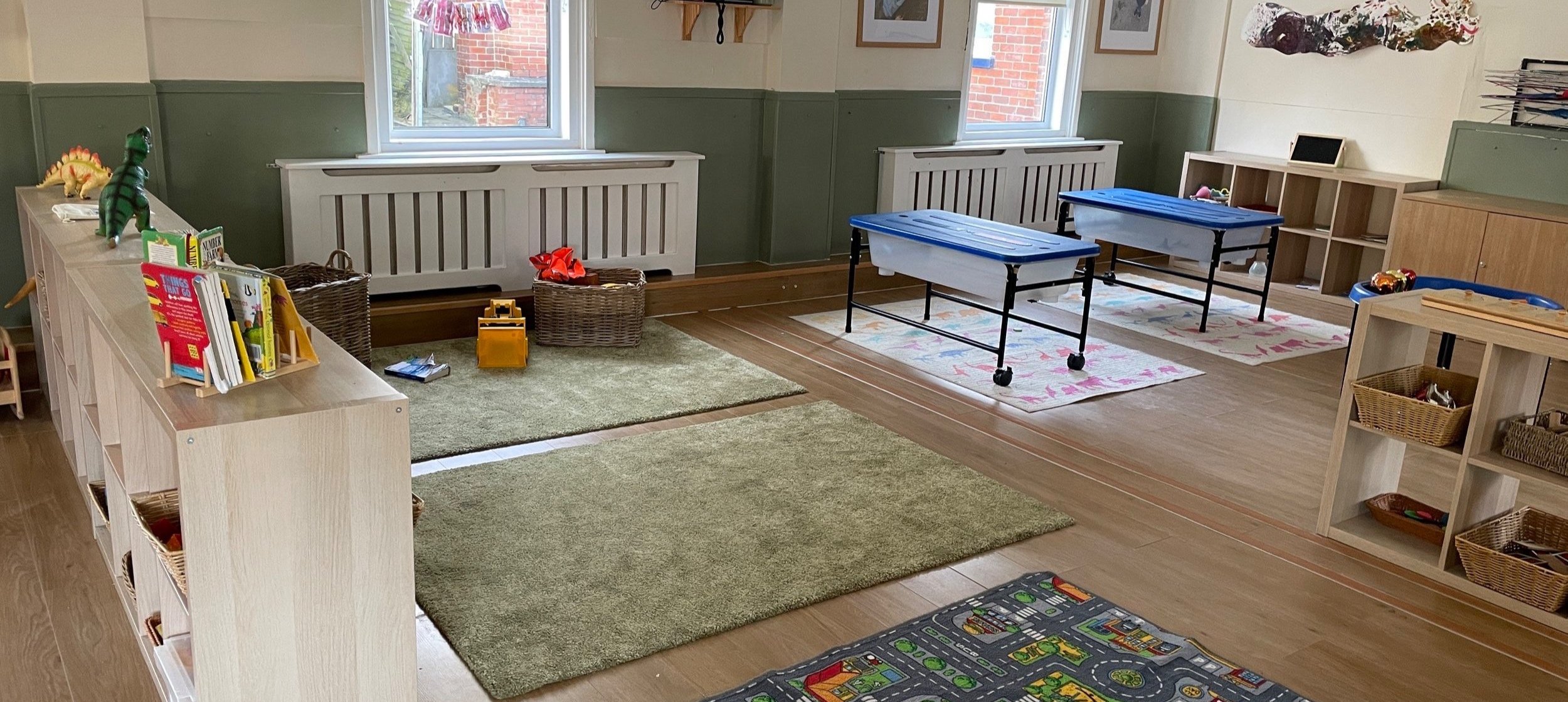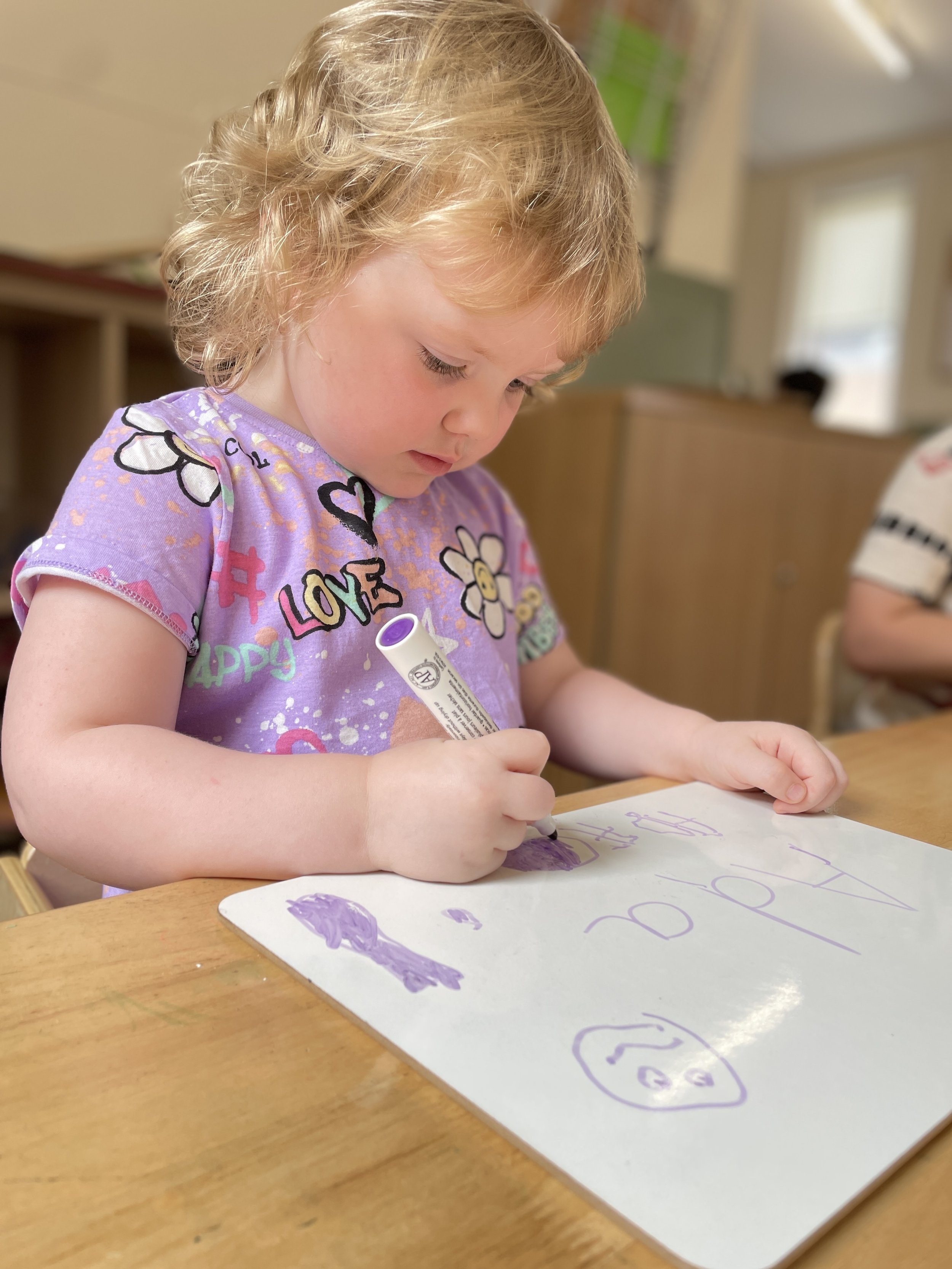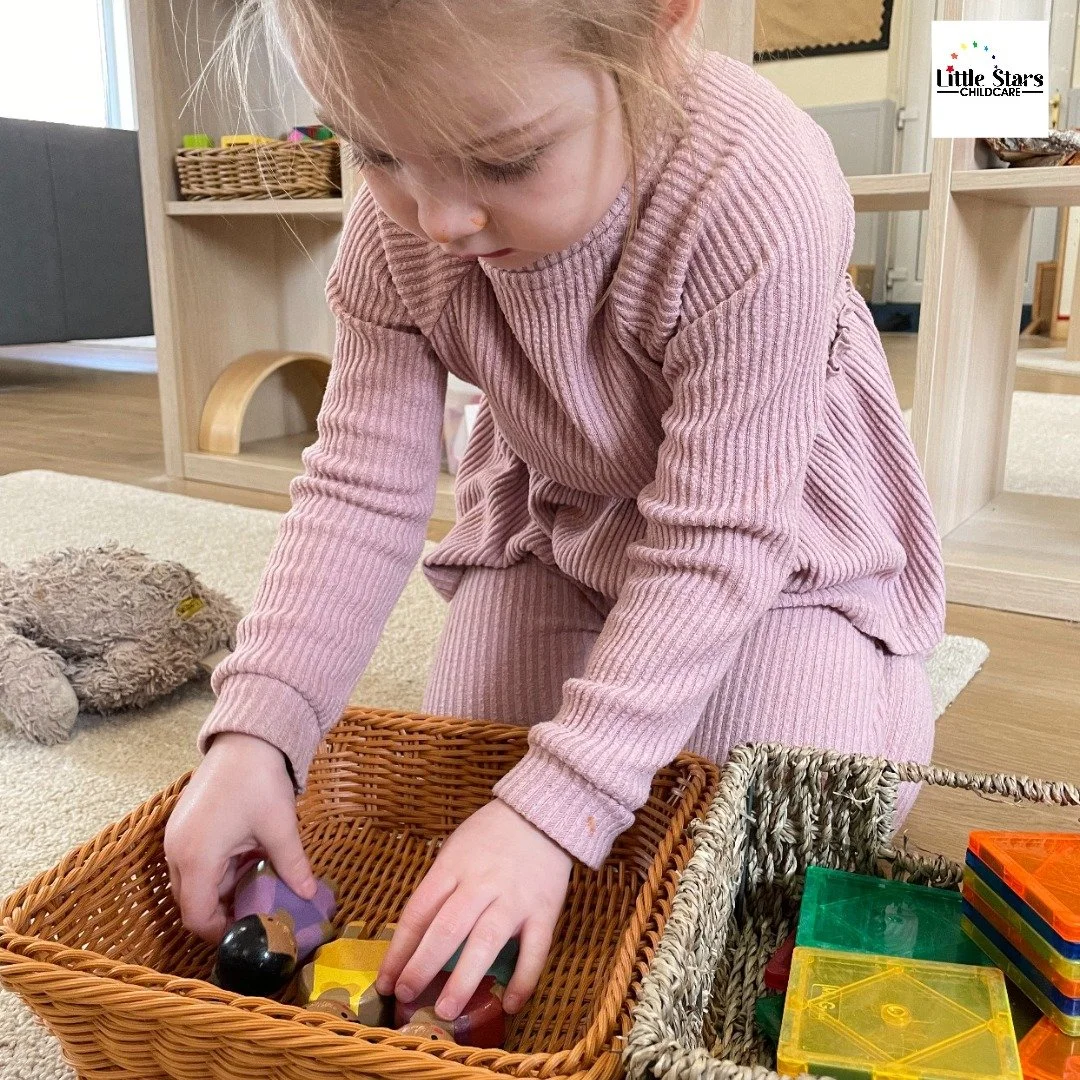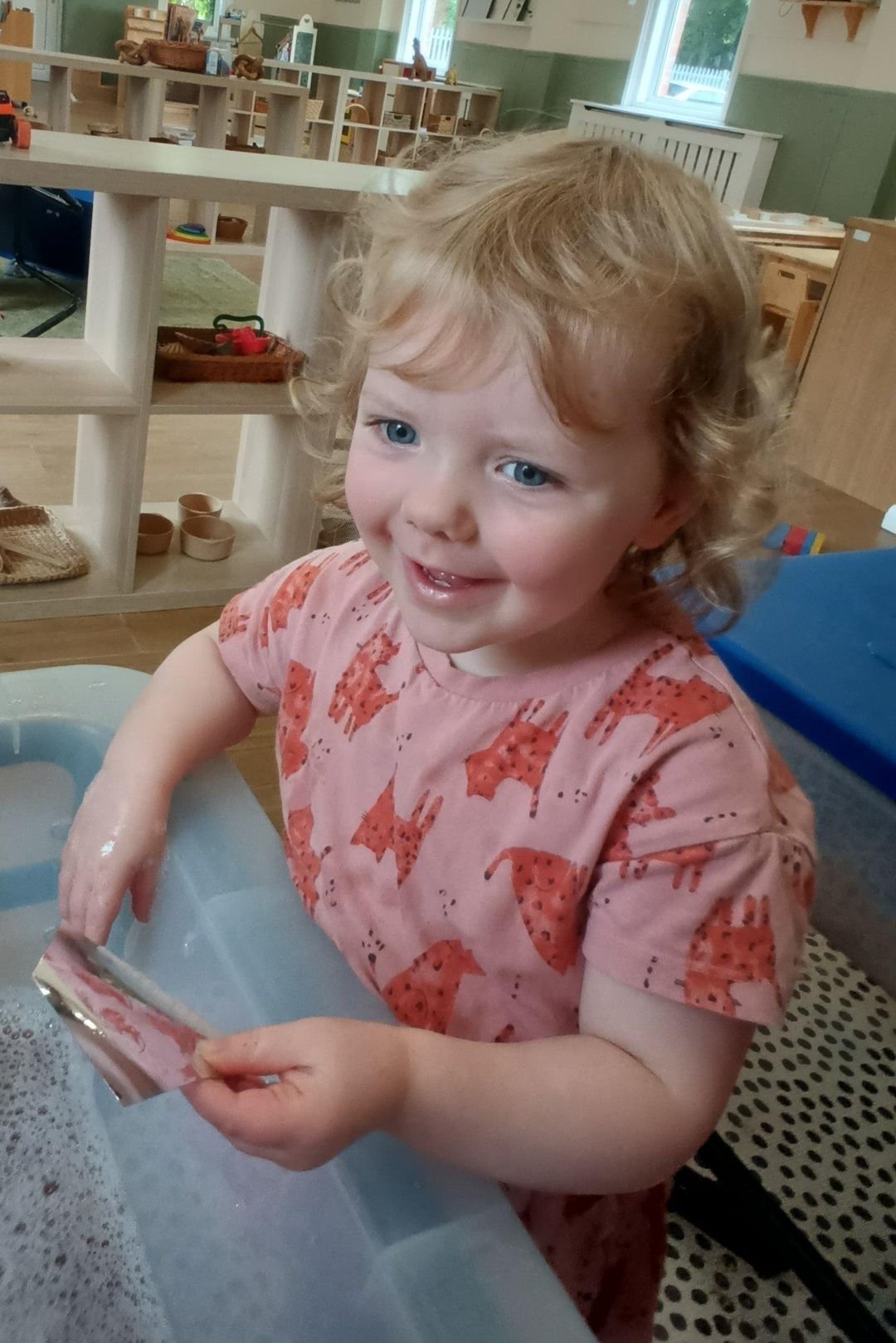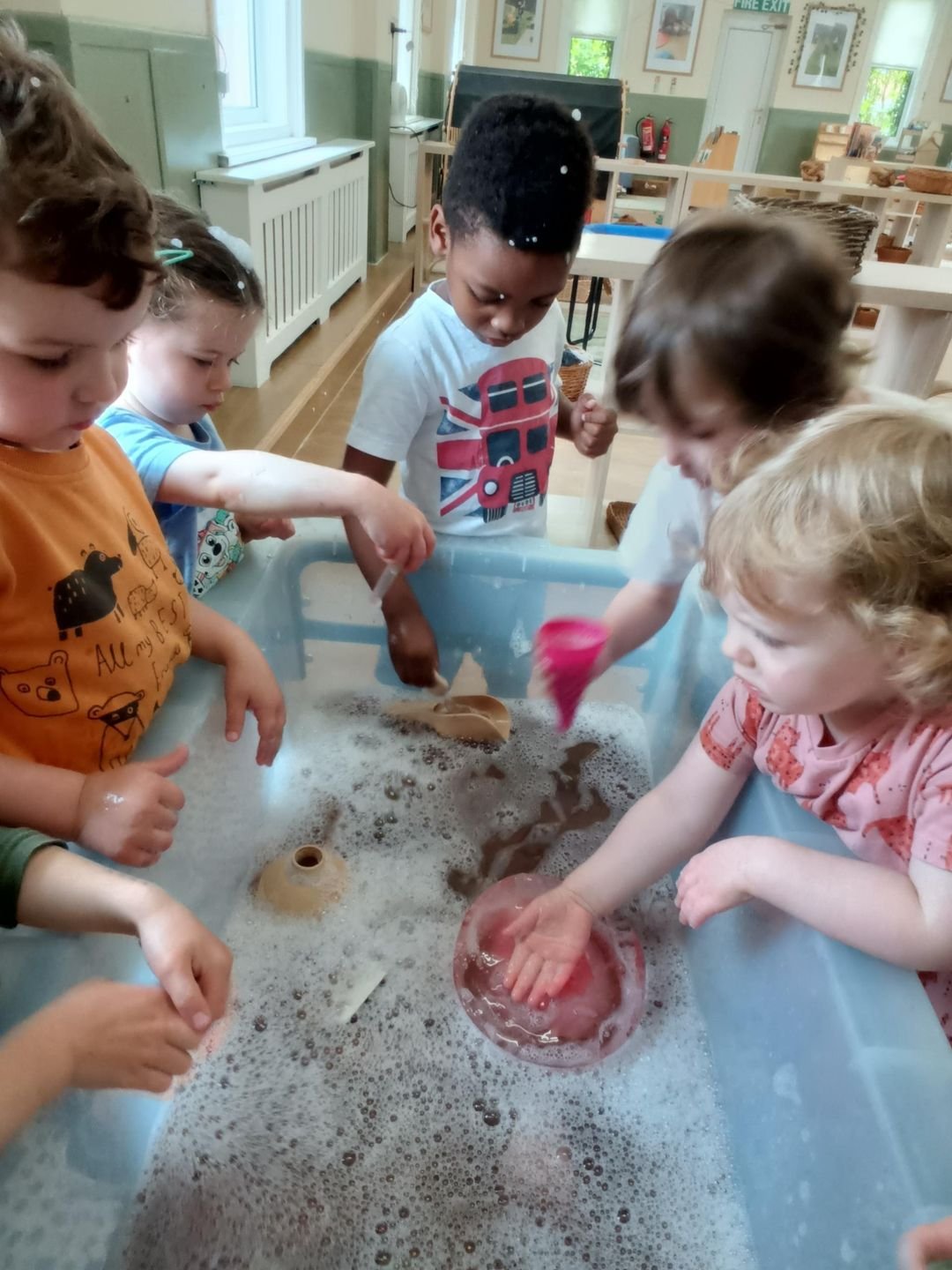
Pre-School Room
The Pre-School Room is for our oldest children, where our goal is to encourage and support the development of a life-long love of learning ahead of their next big adventure - school!
Our flexible curriculum is designed to inspire curiosity and creativity, providing a rich environment filled with opportunities for hands-on learning.
Our play-based learning approach means learning experiences are unique to each child, their developmental needs, and their strengths.
We have created a calm yet positively stimulating environment that encourages children to explore, discover, develop and learn through a variety of engaging activities and structured play opportunities.
Preparing for the next adventure
Fostering Independence & Curiosity
Our experienced staff encourages children to take ownership of their learning by allowing them to choose activities, manage their own belongings, and make decisions.
By fostering a love for learning, we encourage children to ask questions, seek answers, and explore the world around them, laying a solid foundation for lifelong learning.
This approach builds confidence and self-reliance, essential skills for school life.
Nurturing Social Skills
We create a warm and supportive environment where children can build friendships, learn to share, and practice effective communication.
Through group activities, collaborative play, and guided discussions, we help children navigate their emotions and develop empathy towards others, preparing them for the social dynamics of school.
Life in the Pre-School Room
-
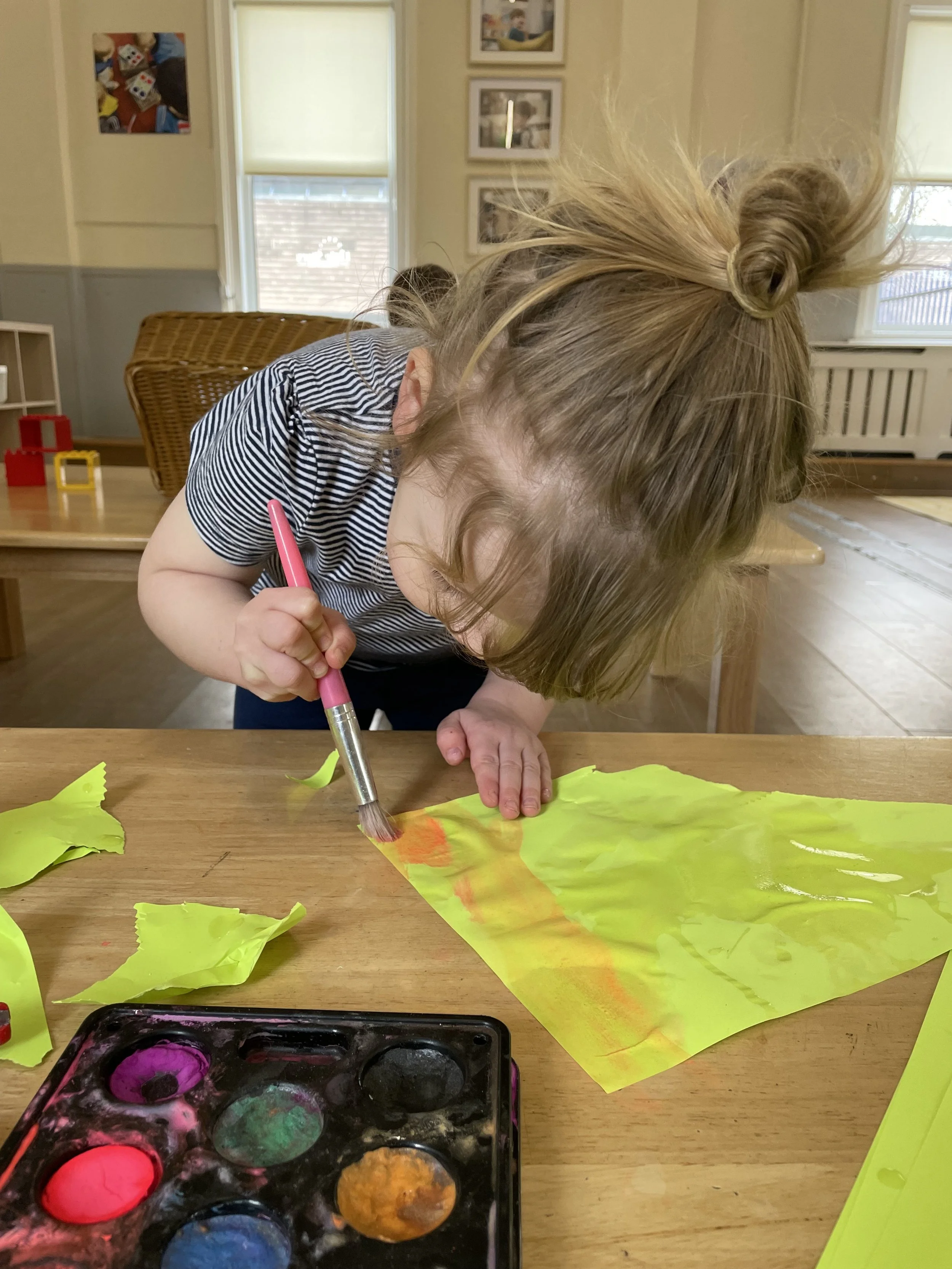
Physical development
At the pre-school stage, children are ready to take on more challenges and learn through opportunities for problem solving and trial-and-error.
We provide opportunities for children to develop their gross and fine motor skills through outdoor play, movement, and activities which focus on physical skills development.
-
Social development
Children learn to navigate friendships and relationships through collaborative activities.
We foster an environment where sharing, co-operation, and effective, positive communication are encouraged.
We also work on early literacy through storytelling, and encouraging language-rich interactions, helping children develop a love for books and enhance their vocabulary.
-

Learning through play
Children engage in hands-on learning experiences that encourage exploration and curiosity, allowing them to discover new concepts and ideas through play.
Our daily schedule includes a balance of structured activities and free play, providing opportunities for children to engage in guided learning while also exploring their interests independently.
-

Pre-school concepts
We incorporate activites which introduce subjects like science and maths in a fun and non-academic structure.
Science and discovery activities help to spark curiosity about the world, while simple maths activities help children grasp basic concepts.
Children learn to observe, ask questions, draw conclusions and experiment, learning the concept of cause and effect.
-
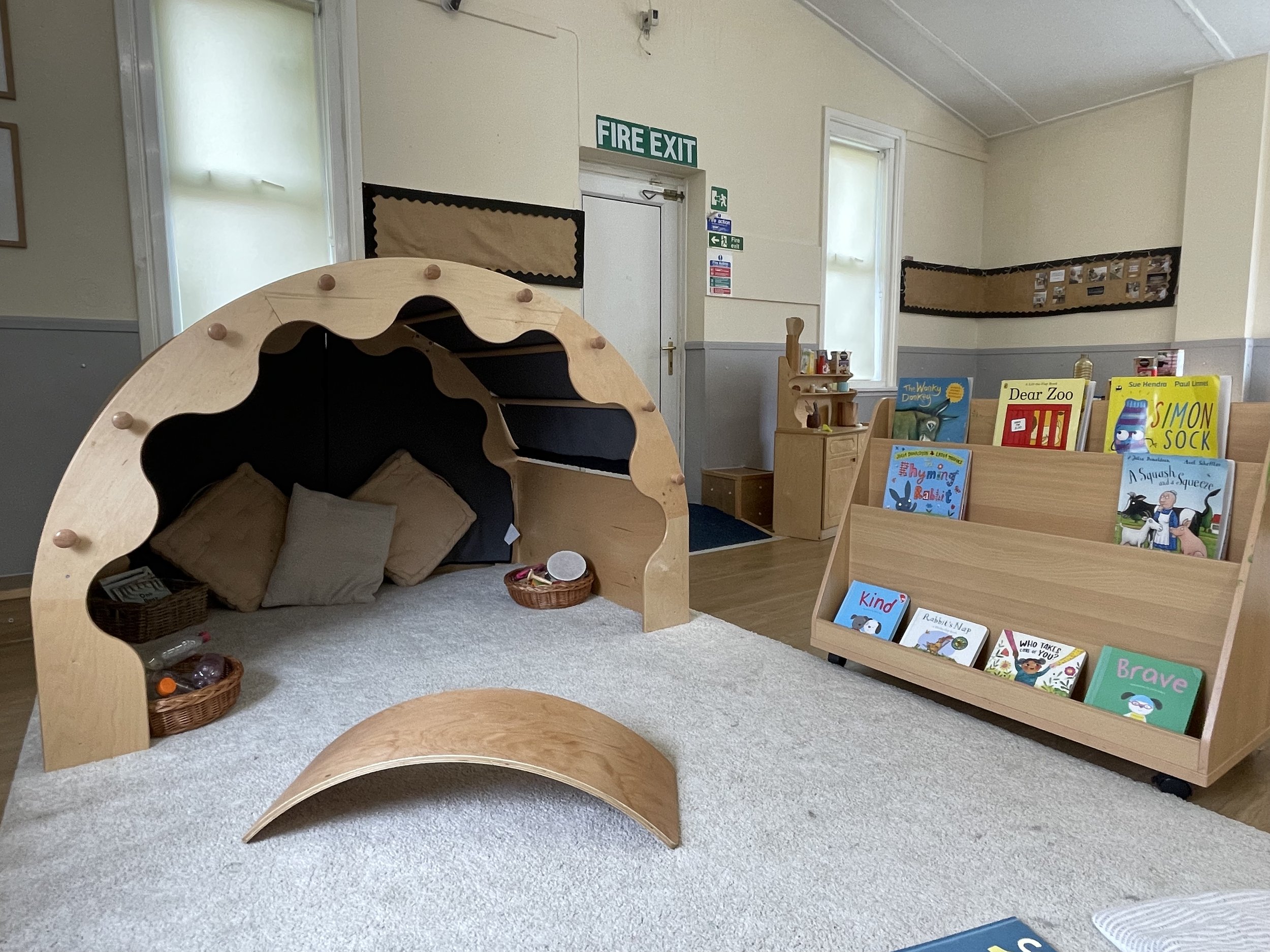
Wellbeing & mindfulness
Mindfulness activities are integrated into our routine to help children manage emotions and develop focus.
Simple breathing exercises and quiet time allow for reflection and relaxation, while dance party sessions and outdoor play provide opportunities for physical expression.
The cosy areas around the pre-school room provide spaces for the children to practice independent reflection and sef-regulation whenever the wish.
-

Healthy habits
At this stage, we provide additional opportunities for children to learn about healthy habits.
Through daily routines and activities, children learn the importance of nutrition, personal hygiene, and physical activity.
We encourage open conversation and discuss the benefits of these habits while practicing them to aid in understanding and set the stage for lifelong wellness.
Ofsted Feedback
“[Children] are encouraged to choose what they would like to do.”
“Staff use everyday activities to develop children's understanding of mathematics.”
“Staff talk about the food [the children] eat at mealtimes to help them understand what is healthy for them.”






